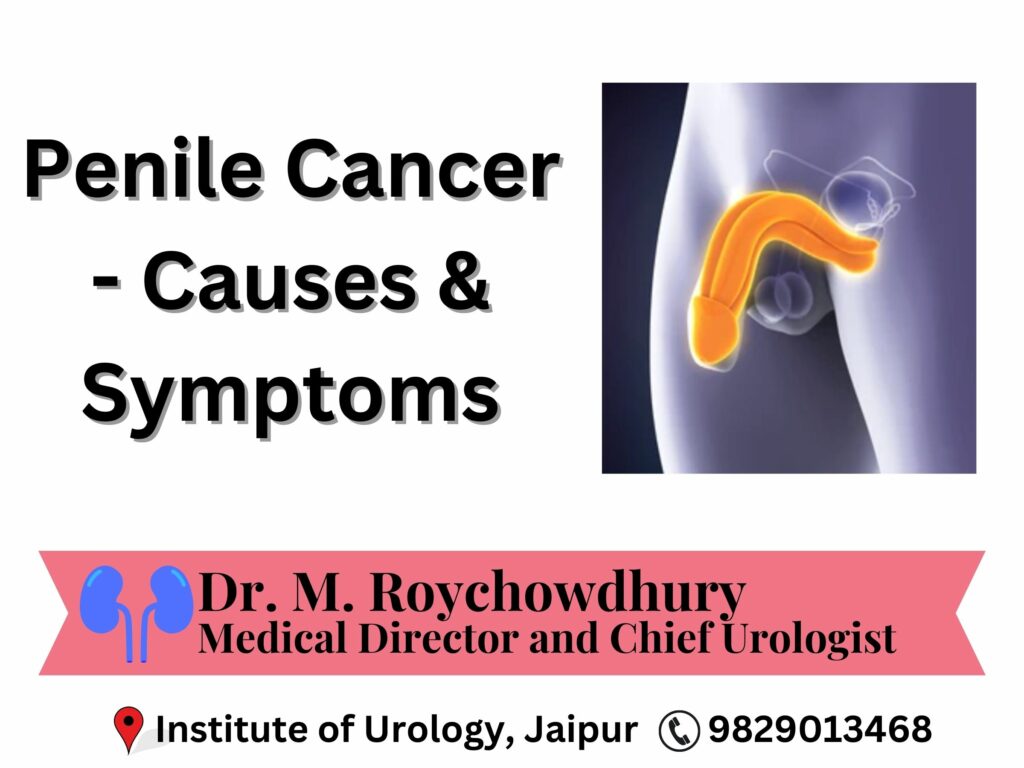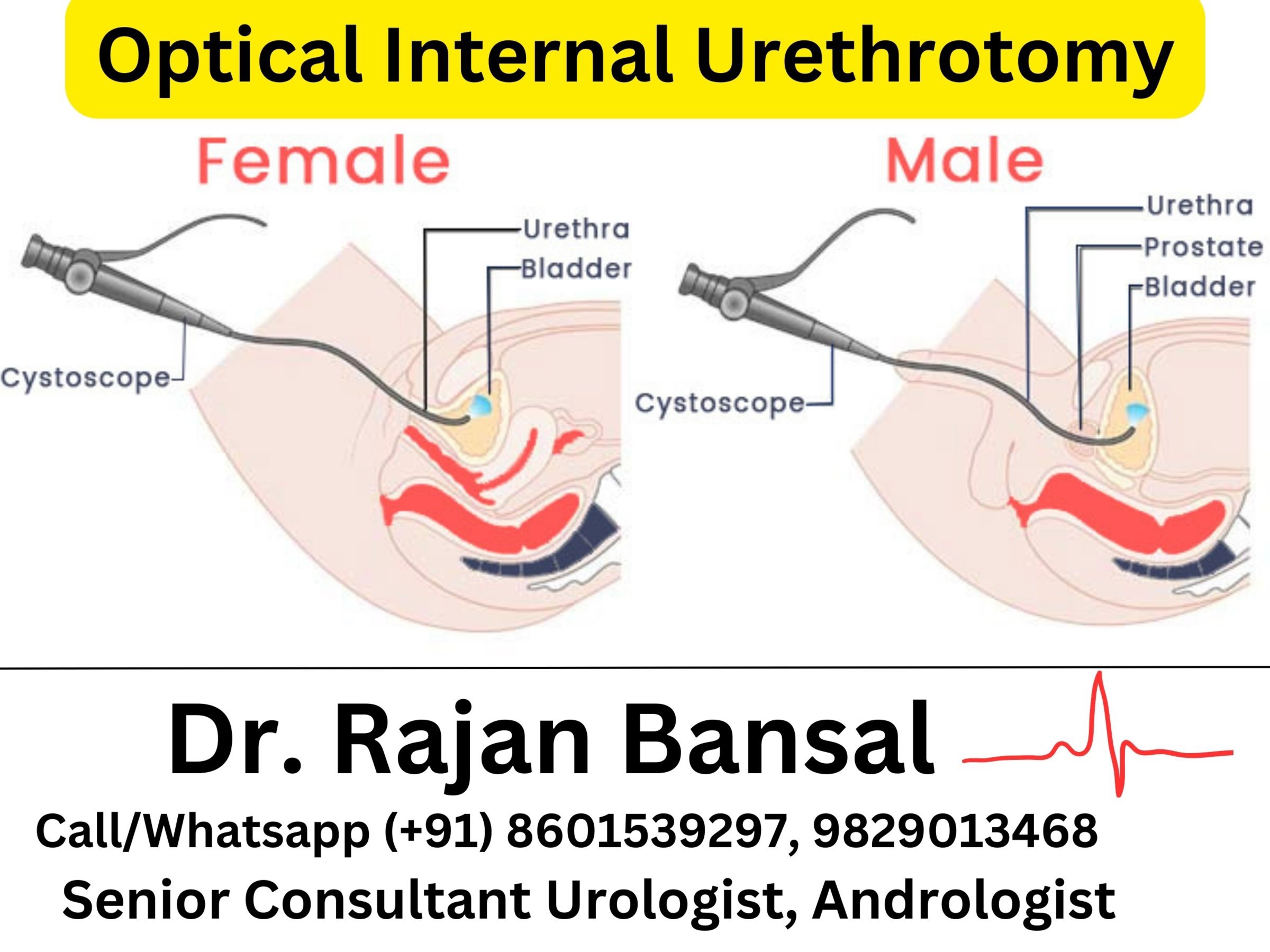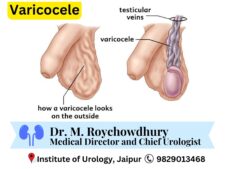Penile Cancer – Causes & Symptoms: Penile cancer is a rare yet serious condition that affects men worldwide. Despite its low incidence rate, understanding the causes and recognizing the symptoms is crucial for early detection and effective treatment. This comprehensive guide explores the various factors that contribute to penile cancer and sheds light on the common symptoms that individuals should be aware of. By delving into the realm of penile cancer, we aim to empower readers with valuable knowledge for their health and well-being.

What is Penile Cancer?
Penile cancer is a type of cancer that develops in the tissues of the penis. It occurs when abnormal and uncontrolled cell growth takes place in the penis, leading to the formation of a tumor. While penile cancer is relatively rare, it can have serious consequences if not diagnosed and treated early.
The penis is made up of various types of cells, including skin cells, nerve cells, and connective tissue cells. Penile cancer typically originates in the skin cells or the cells that line the inner structures of the penis. It can start as small, localized growths on the surface or within the tissues of the penis and may gradually spread to nearby lymph nodes and other organs if left untreated.
What are the Causes of Penile Cancer?
The development of penile cancer can be influenced by various factors. While the exact cause of penile cancer is not always clear, certain risk factors have been identified. Understanding these risk factors can help individuals take proactive steps to reduce their chances of developing penile cancer. Here are some of the known causes and risk factors associated with penile cancer:
Human Papillomavirus (HPV) Infection: Infection with certain strains of the human papillomavirus (HPV) is a significant risk factor for penile cancer. HPV is a common sexually transmitted infection, and specific high-risk types, such as HPV 16 and 18, have been linked to the development of penile cancer. HPV is typically transmitted through sexual contact with an infected individual.
Poor Hygiene Practices: Inadequate genital hygiene can increase the risk of penile cancer. Failure to maintain proper cleanliness may lead to the accumulation of smegma, a substance that can irritate the penile tissues and potentially trigger cancerous changes.
Smoking and Tobacco Use: Smoking and tobacco use have been associated with various types of cancers, including penile cancer. The harmful chemicals in tobacco can cause DNA damage and weaken the immune system, making individuals more susceptible to the development of cancerous cells.
Phimosis: Phimosis is a condition in which the foreskin of the penis is too tight to retract. This condition can lead to poor hygiene and the accumulation of smegma, which can increase the risk of penile cancer.
Age: Penile cancer is more commonly diagnosed in older men, with the majority of cases occurring after the age of 50. The risk of penile cancer tends to increase with age.
Genetic Factors: Certain genetic factors may contribute to an increased risk of developing penile cancer. Family history of the disease or specific genetic mutations can play a role in the susceptibility to penile cancer.
It is important to note that having one or more of these risk factors does not necessarily mean that an individual will develop penile cancer. However, understanding these risk factors can help individuals make informed decisions regarding their lifestyle choices and seek appropriate preventive measures.
Reducing the risk of penile cancer can be achieved by practicing safe sex, including consistent condom use, getting vaccinated against HPV, maintaining good genital hygiene, quitting smoking and tobacco use, and seeking regular medical check-ups to monitor any potential changes or symptoms. By addressing these risk factors, individuals can take proactive steps to minimize their chances of developing penile cancer.
What are the Symptoms of Penile Cancer?
Symptoms of penile cancer may vary depending on the stage and location of the tumor. It’s important to note that these symptoms may also be caused by other conditions unrelated to cancer. However, if any of the following symptoms persist or cause concern, it is advisable to consult a good urologist for a proper evaluation. Here are some common symptoms associated with penile cancer:
1. Penile Lesions and Sores: Persistent sores, ulcers, or lumps on the penis that do not heal within a few weeks can be an early sign of penile cancer. These lesions may appear as small, raised, or discolored areas on the skin or within the penile tissues.
2. Changes in Skin Color and Texture: Penile cancer can cause changes in the color and texture of the skin on the penis. Look out for areas that appear reddened, whitish, or darker than the surrounding skin. Additionally, the skin may become thicker, scaly, or develop a velvety texture.
3. Pain or Discomfort: Penile cancer may cause pain, tenderness, or discomfort in the affected area. This discomfort can manifest as persistent itching, a burning sensation, or a feeling of pressure.
4. Enlarged Lymph Nodes: As penile cancer progresses, it can spread to nearby lymph nodes, leading to their enlargement. Palpable lumps or swelling in the groin area may indicate the involvement of lymph nodes.
5. Foul Odour or Discharge: In some cases, penile cancer may cause a foul odor or unusual discharge from the penis. If you notice any unusual smells or discharge, it is important to seek medical attention.
6. Erectile Dysfunction: Penile cancer can affect the functionality of the penis, leading to difficulties in achieving or maintaining an erection (erectile dysfunction). If you experience persistent difficulties in this regard, it is advisable to consult a healthcare professional.
It’s important to remember that these symptoms can be caused by various factors, and having one or more of these symptoms does not necessarily indicate penile cancer. However, if you notice any persistent or concerning changes in the penis, it is always best to seek medical advice for proper evaluation and diagnosis.
Early detection plays a crucial role in the successful treatment of penile cancer. Regular self-examinations and routine check-ups with a healthcare professional can help identify any suspicious changes and facilitate timely intervention if needed.
Penile Cancer Testing & Treatment in Jaipur – Institute of Urology, C Scheme, Jaipur
Penile cancer may be a rare condition, but its impact on individuals and their quality of life is significant. By understanding the causes and recognizing the symptoms of penile cancer, individuals can take proactive steps towards prevention, early detection, and effective treatment. Safe sex practices, HPV vaccination, good hygiene habits, smoking cessation, and regular check-ups are key components of a comprehensive approach to reducing the risk of penile cancer. Remember, knowledge is power when it comes to safeguarding your health, so stay informed, stay proactive, and prioritize your well-being.
You can give me a call at 9829013468 (Dr. M. Roychowdhury) and get your queries resolved. Private consultation can also be booked on the same number. Remember, there is no need to be conserved when it comes to matters concerning Men’s health. At Institute of Urology, we prioritise men’s health and assure you complete confidentiality along with best in class care as we go through the treatment process together. So all you have to do is book an appointment and come have a chat with us about your urological concerns.








This very valuable opinion